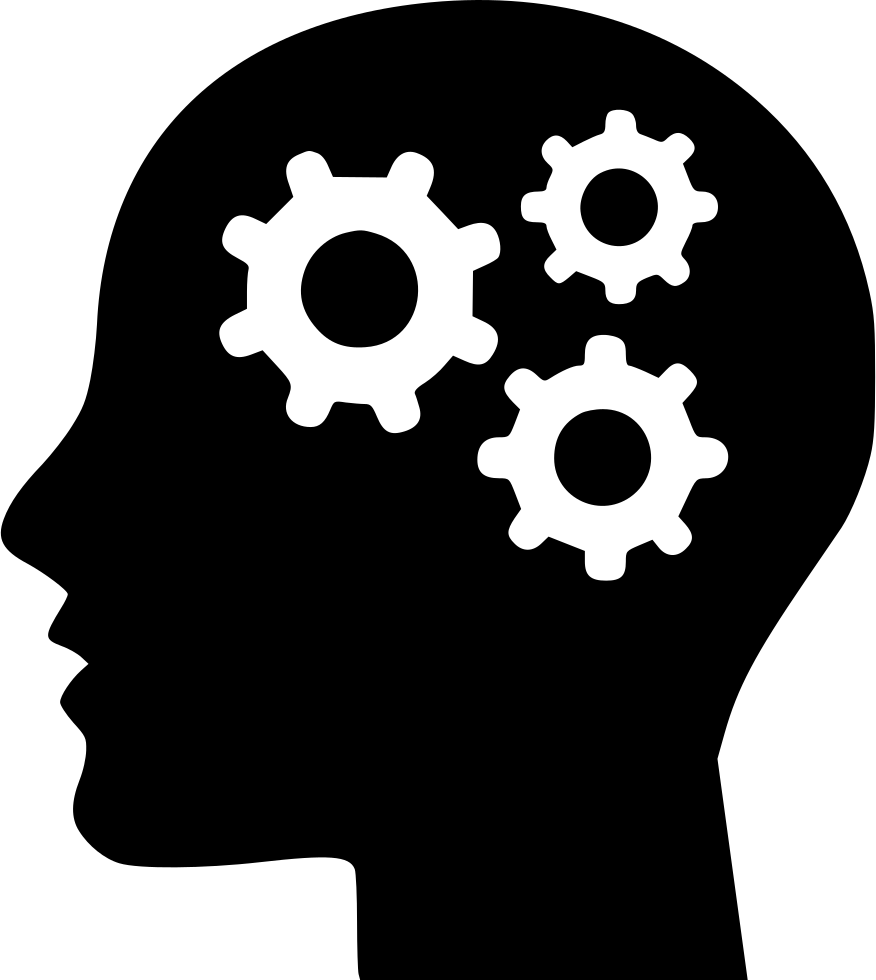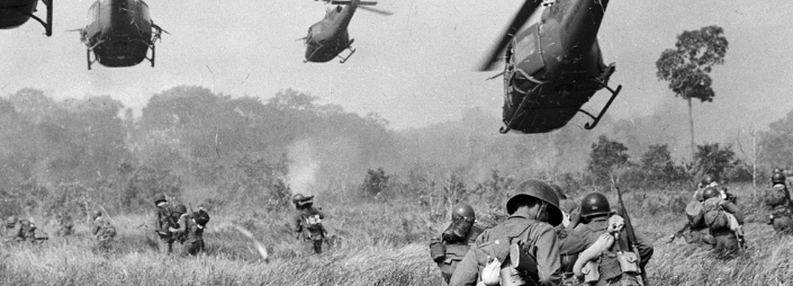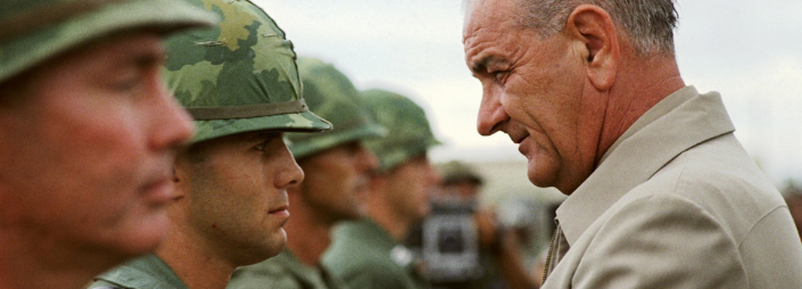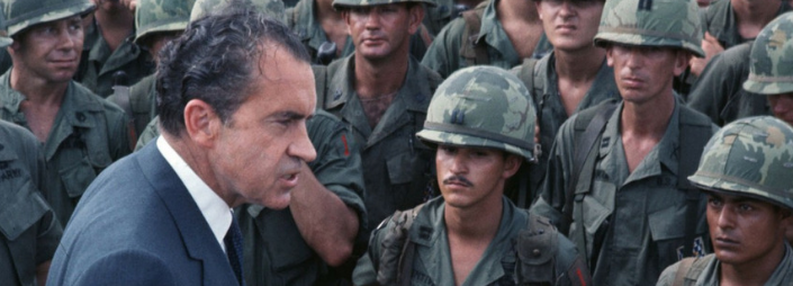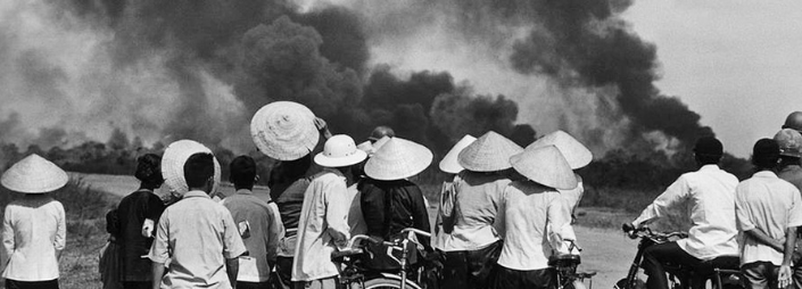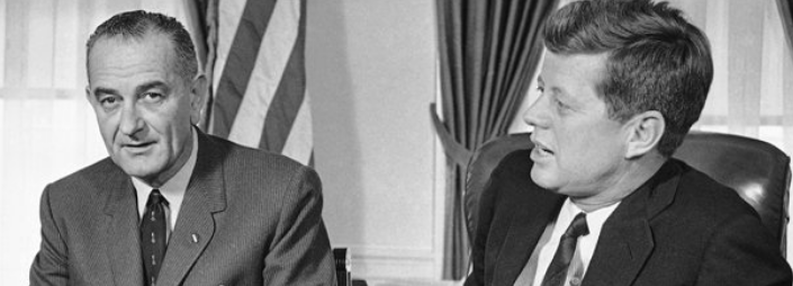Unit Outline
The Vietnam War, or Second Indochina War, refers to the period of civil war between 1959-1975 of the forces of the Army of the Republic of Vietnam (ARVN) and the communist guerrilla forces of the National Liberation Front of South Vietnam (NLF) also known as the Viet Cong. ARVN was funded and equipped by the US. Under successive US Presidents, American support steadily increased, culminating in the sending of US ground troops to South Vietnam in 1965. This transformed the civil war into a Cold War proxy conflict. Likewise, the NLF was funded and equipped by the Democratic Republic of Vietnam (DRV) and their People’s Army of Vietnam (PAVN). They were in turn supported by both the USSR and PRC.
Initially, it was just a civil war in South Vietnam (RVN) from 1957 between government forces and communist insurgents. Yet in 1959, the Second Indochina War officially began as the North (DRV) voted to launch a people’s war of liberation and unification against the South (RVN). The National Liberation Front (NLF) was created in 1960 as a national independence movement to lead this struggle, similar to the Viet Minh. Their armed forces were officially known as the People’s Liberation Armed Forces (PLAF) - the south called them Viet Cong (VC). Although the US sent military advisors and support from 1954, from a US perspective the Vietnam War didn’t begin until US ground troops were sent in 1965.
For the purposes of this unit, we need to study why civil war broke out in 1957, why this was then supported by the communist DRV in 1959, and then why the US formally intervened in 1965. In doing so, this unit will explore how all sides in the conflict were guided by their ideologies, thus the statement of inquiry is:
Initially, it was just a civil war in South Vietnam (RVN) from 1957 between government forces and communist insurgents. Yet in 1959, the Second Indochina War officially began as the North (DRV) voted to launch a people’s war of liberation and unification against the South (RVN). The National Liberation Front (NLF) was created in 1960 as a national independence movement to lead this struggle, similar to the Viet Minh. Their armed forces were officially known as the People’s Liberation Armed Forces (PLAF) - the south called them Viet Cong (VC). Although the US sent military advisors and support from 1954, from a US perspective the Vietnam War didn’t begin until US ground troops were sent in 1965.
For the purposes of this unit, we need to study why civil war broke out in 1957, why this was then supported by the communist DRV in 1959, and then why the US formally intervened in 1965. In doing so, this unit will explore how all sides in the conflict were guided by their ideologies, thus the statement of inquiry is:
|
statement of inquiry
Ideology and political perspectives can distort how states view threats to their security, increasing the chances for states to be drawn into conflicts
global context
Personal and Cultural Expression (Social constructions of reality; philosophies and ways of life; belief systems; ritual and play) - Students will explore the ways in which we discover and express ideas, feelings, nature, culture, beliefs and values; the ways in which we reflect on, extend and enjoy our creativity; our appreciation of the aesthetic.
key history concept
Perspective - IB students should be aware of how history is sometimes used or abused to retell and promote a grand narrative of history, a narrowly focused national mythology that ignores other perspectives, or to elevate a single perspective to a position of predominance. Students are encouraged to challenge and critique multiple perspectives of the past, and to compare them and corroborate them with historical evidence. Students should recognize that for every event recorded in the past, there may be multiple contrasting or differing perspectives. Using primary-source accounts and historians’ interpretations, students may also investigate and compare how people, including specific groups such as minorities or women, may have experienced events differently in the past. In this way there are particularly strong links between exploring multiple perspectives and the development of international-mindedness.
related history concept(s)
Ideology - An ideology is a system of ideas and ideals, which can form the basis of political or economic theories, policies and actions. Ideologies usually encompass systematic arrangements of premises and assertions that are used to interpret the world and make normative assertions about how it should be organized. Ideologies can evolve and change over time in order to meet the needs of a group of people or a society. Ideologies can be derived from the place and space in which a group of people or a society is located. Ideologies can evolve into political, economic or social systems and these systems can impact humans in a variety of ways. For example, through the definition of certain rights and responsibilities.
|

